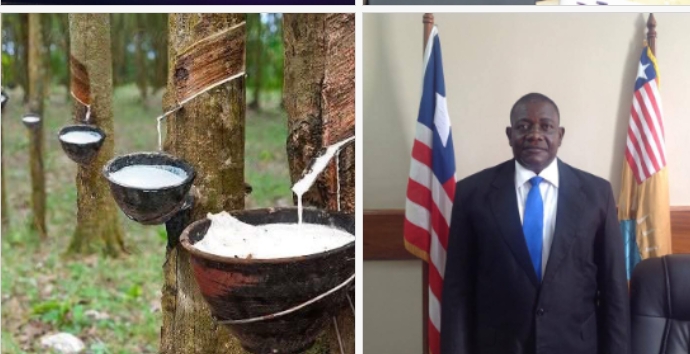Matthias F. Larbeindee| Contributing Reporter
Monrovia, Liberia – August 4, 2025 — Former Gbarpolu County Senator and one-time President Pro Tempore of the Liberian Senate, Armah Zulu Jallah, has issued a strong call to action, urging the Government of Liberia to repeal Executive Order No. 151 and to adopt a bold new vision for the country’s rubber industry, one that prioritizes smallholder farmers and value-added production.
In a statement released in Monrovia on Sunday, Jallah expressed deep concern that Executive Order 151 grants undue advantage to large corporations, including foreign-owned firms, while sidelining local rubber farmers who, he emphasized, form the “backbone of Liberia’s rural economy.”
“Rubber is one of Liberia’s most vital natural resources,” Jallah said. “Yet all too often, we export raw rubber and lose the chance for economic transformation through industrialization. Local farmers continue to operate at the lowest end of the value chain while powerful companies extract maximum benefit.”
He warned that the current policy framework threatens to further entrench inequality and economic dependency, unless deliberate action is taken to empower Liberians to climb the value chain.
Jallah proposed a comprehensive overhaul of the rubber sector policy through the following key measures:
- Protecting the rights of smallholder farmers to produce, process, and export rubber
- Establishing regional processing plants through Public–Private Partnerships (PPP), with farmer cooperatives holding equity stakes
- Securing concessional financing from national, regional, and multilateral institutions to support industrial-scale rubber processing
- Training smallholders in advanced rubber processing to manufacture items like tires, gloves, tubing, and footwear
“This is a national imperative,” Jallah declared. “To move from exporting raw rubber to exporting value-added products, thereby creating jobs, increasing incomes, and retaining more wealth within Liberia.”
He further called on lawmakers, civil society organizations, development partners, the media, and the general public to rally behind a new vision for Liberia’s rubber industry. Specifically, he advocated for: Amending or rescinding Executive Order No. 151; launching a National Rubber Industrialization Strategy and positioning smallholder farmers as leaders in the rubber value chain, rather than just suppliers of raw latex.
“Let us build a rubber sector that reflects Liberia’s industrial potential, owned and driven by Liberians, for Liberians,” Jallah urged.
The statement adds to growing national debate around resource governance and equitable growth, especially in sectors where local communities have historically been excluded from meaningful participation in value creation.



